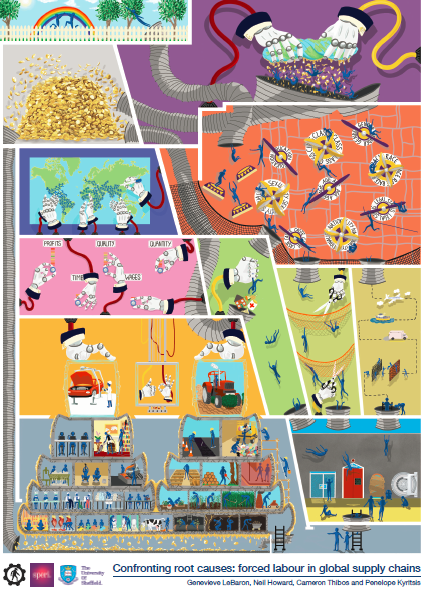Forced labour is all around us, but not how you think. ‘Confronting root causes’ pulls together research from across the world to explain where it comes from and what we can do about it.
A co-production of Beyond Trafficking and Slavery and the Sheffield Political Economy Research Institute (SPERI), this 12-part report uses the classic metaphor of supply and demand to provide policymakers, journalists, scholars and activists with a roadmap for understanding the political economy of forced labour in today’s ‘global value chain world’.
Globalisation’s promise was to pull people out of poverty by integrating them into the world market and offering them decent work. It hasn’t delivered. Today, hundreds of millions of people are unemployed; more than 75% of the global workforce is on temporary or informal contracts; the ranks of the working poor are expanding daily; the provision of social and labour protection has been reduced; migrant rights are under threat; and exploitative as well as forced labour appear endemic in a number of industries.
This report offers compelling evidence that forced labour within supply chains frequently follows observable patterns, and that current global labour initiatives are failing to address the root causes underlying these patterns.
With the hope of sparking a conversation among policy-makers and activists to address previous failings and finally get to the root of forced labour, the authors have drawn together existing research from across a wide range of disciplines and geographies to explain the mechanisms allowing forced labour to occur as well as to highlight innovative ways forward.

